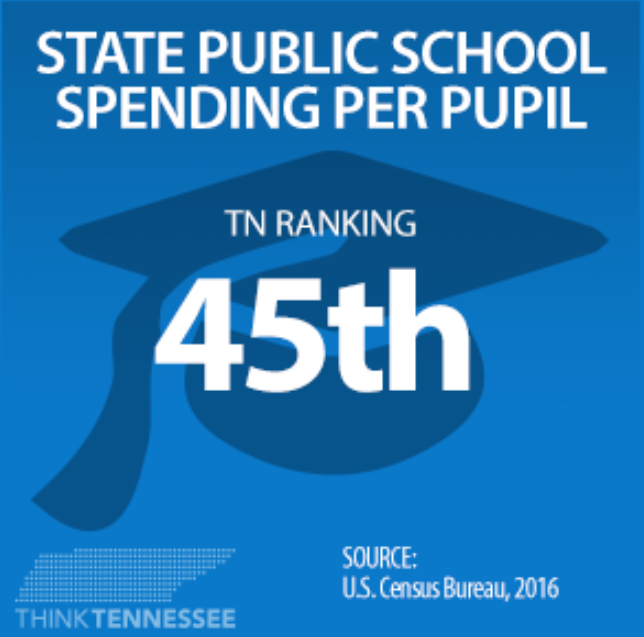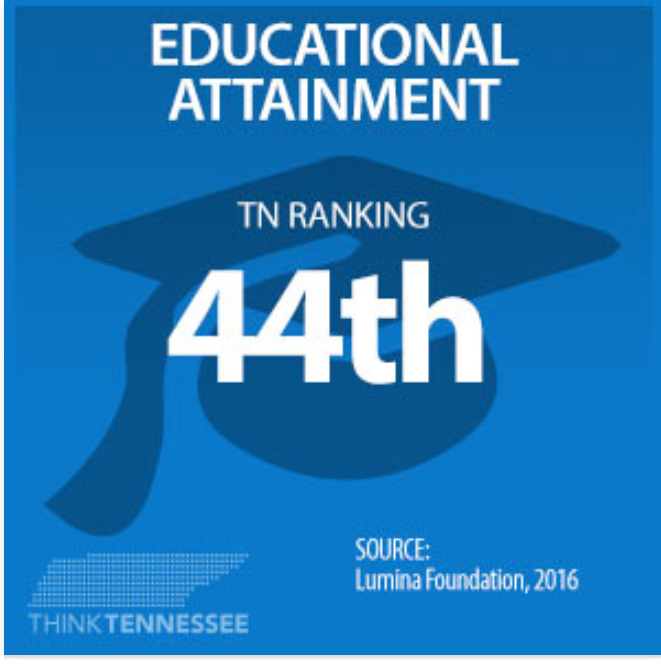In 2002, the Tennessee General Assembly passed the Tennessee Public Charter Schools Act. The law allowed for local school districts to authorize charter schools — schools that would operate independently from district control and be run by private, non-profit boards. The move was hailed as a way to improve educational opportunity, especially for students in districts with high concentrations of low-income families. Then, in 2011, the legislature lifted the cap on charter schools, allowing for further proliferation of the publicly-authorized, privately-run entities.
The National Alliance for Public Charter Schools notes that Tennessee has 112 charter schools serving more than 40,000 students.
Governor Bill Haslam created a charter school capital fund and Governor Bill Lee moved to double this slush fund in his first legislative session. Additionally, Lee created a state charter commission, designed to allow charter operators to circumvent local school boards in seeking authorization. In fairness to Lee, Democrats nominated Karl Dean for Governor in 2018. Dean was an avid charter advocate, bringing the Charter School Incubator to Nashville.
Since charters are (for now) embedded in Tennessee’s education system, a recent report from the Network for Public Education should be of interest. The report notes that more than $500 million in federal spending was wasted on charter schools that are either now defunct OR never even opened. In Tennessee, 49% of the schools that received grants are now closed or never even opened. Here’s more from the report:
One hundred and twenty-one grants were given to open or expand charter schools in Tennessee from the federal charter schools program between 2006-2014. At this time, at least 59 (49%) of those charter schools are now closed or never opened at all. Forty-three of the 59 grant recipients never opened at all.
Of the 43 that never opened, 38 did not even have a name. Only a grant amount was listedIn total, $7,374,025.00 was awarded to Tennessee charter schools during those years that either never opened or shut down.
This report comes as the charter-dominated Achievement School District is under fire for failing to produce results.
Those pushing charters as the savior to our state’s education woes would do well to remember the parting words offered by the ASD’s first Superintendent, Chris Barbic:
In his email early Friday, Barbic offered a dim prognosis on that pioneering approach. “As a charter school founder, I did my fair share of chest pounding over great results,” he wrote. “I’ve learned that getting these same results in a zoned neighborhood school environment is much harder.”
In other words, poverty matters. And, making the investments to combat it matters, too.
In other words, money matters. Districts with concentrated poverty face two challenges: Students with significant economic needs AND the inability of the district to generate the revenue necessary to adequately invest in schools.
But, by all means, let’s continue to worship at the feet of the Charter God hoping that our faith in “free markets” will be enough to move the needle for the kids who most need the opportunities provided by public education.

For more on education politics and policy in Tennessee, follow @TNEdReport
Your support — $5 or more today — makes reporting education news possible.











